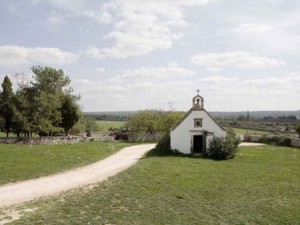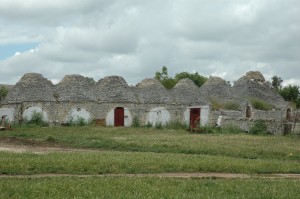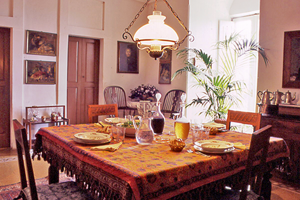HISTORY OF THE MASSERIA
« G. Battista Albanese oversaw the construction of the country house from its very beginning, with elegantly decorated interiors …… and here is the quiet life away from the worries of the city and its ambitions …. »
In front of the main house is the small Chapel in which is a wonderful fresco by F. Carella. The Albanese family suffered a slow decline at the end of the Neapolitan Republic, and G. Leonardo Albanese who had been a Government Minister was guillotined in 1799.
 The church
The church
The small stone Chapel was built by Archpriest Nicholas Albanese as evidenced by the inscription :
« The Rev. Archpriest Nicholas Albanese built this temple in his possession for the Albanese family, and for his private devotion (Words of a cleric devoted to the Lord) ».
He commissioned the painter Carrella to embellish the interior with frescoes which work was completed by 1737. The Chapel and its interior are currently undergoing restoration.
 Exterior
Exterior
Masseria Murgia Albanese belongs to what is called a cubic farm estate, that is one in which the landowner delegates the management and maintenance of the land to a tenant farmer, while he personally takes care of the exterior of the property.
The Masseria today is a living working example of that ideal, a bit « peasant culture », a little pretentious, which thrived in the large province that was the Kingdom of Naples at the end of the 18th century.
.
 Interiors
Interiors
The atmosphere of every corner of the Masseria is its real charm as, over the generations, little has changed; the structure itself, the doors, shutters, the old locks and bolts, the white interior of much of the house, the cabinets and their contents. Much is as it once was. Furniture and personal collections bear witness to the past; aged gramophones sit alongside 19th century upholstered furniture, photographs and family portraits are proudly displayed in the upstairs rooms.
The bedrooms are furnished with heirlooms handed down from great grandparents to great uncles and so on, but updated with new mattreses and linen to ensure a good night’s sleep.


 Exterior
Exterior